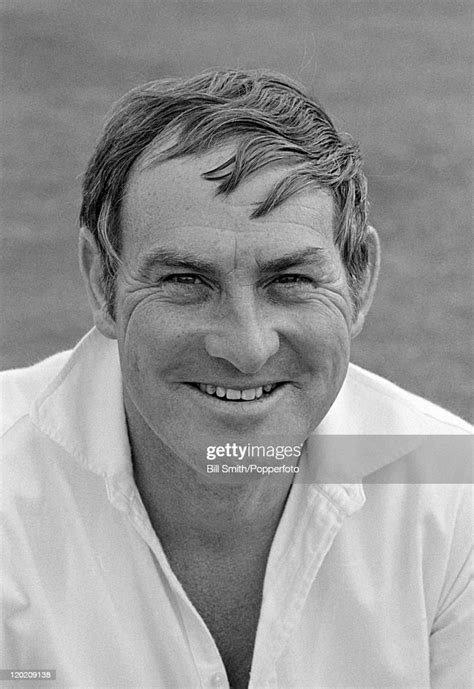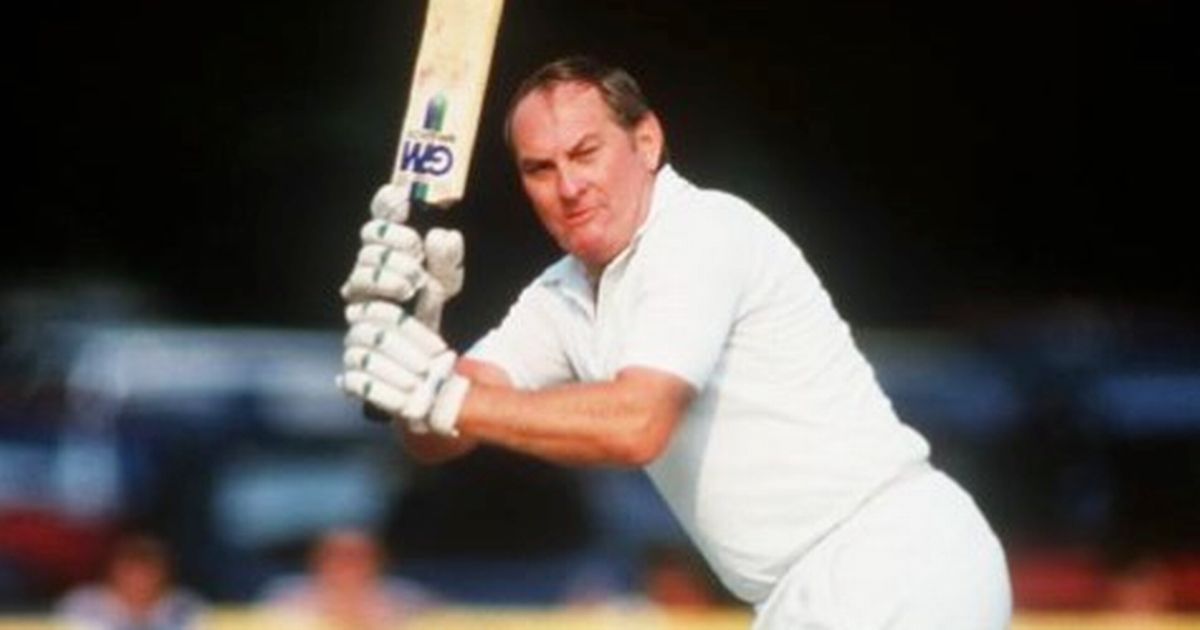Ray Illingworth is a big name in cricket, known for his strong leadership and great playing skills. His cricket career spanned from the late 1950s to the 1970s, a time when cricket saw a lot of changes both in how it was played and in other areas.
Illingworth was born in Pudsey, Yorkshire, and his early life set him up for a successful career that combined technical skill with a deep understanding of cricket.
He moved from playing in local leagues to the international stage, where he often played key roles in his team’s victories. His achievements with the bat and ball are well-documented, but they’re just part of what he brought to the game.
Article Highlights
Hide- Ray Illingworth was born on June 8, 1932, in Pudsey, West Yorkshire, and was raised in a working-class English background.
- He was influenced by the industrious ethos of post-war Britain, which helped develop his resilient character and strategic mindset.
- Illingworth had a successful domestic cricket journey, playing for Yorkshire County Cricket Club and later joining Leicestershire, where he made a profound impact with his all-round skills.
- In his international career, he played 61 test matches, took 122 test wickets, and achieved a batting average of 23.24 with two centuries. He also captained the test team in 31 matches, including an Ashes victory in Australia.
When we look at Illingworth’s overall impact on cricket, it’s clear that his legacy is about more than just numbers. He’s also remembered for his leadership skills and the respect he earned.
We’re going to take a closer look at Ray Illingworth’s career, exploring what made him such a respected figure in cricket and how he continues to influence the sport as both a player and a captain.
Early Life and Background
Ray Illingworth, born on June 8, 1932, in Pudsey, West Yorkshire, emerged from a quintessentially working-class English background, setting the stage for his ascent in the world of cricket.
His upbringing, steeped in the industrious ethos of post-war Britain, provided a fertile ground for the development of his resilient character and strategic mindset.
The environment of Pudsey, known for its textile industry, imbued him with a sense of determination and the value of hard work, qualities that would become hallmarks of his later cricketing career.
Bob Taylor
Bob Taylor’s career in cricket is a great story of skill, determination, and important ... Read More
An analytical examination of Illingworth’s early life reveals the impact of socio-economic factors on his eventual cricketing ethos. Pudsey Cricket Club became his crucible, where his latent talents were honed.
His early exposure to cricket was less through formal training and more through the rich tapestry of local matches and the influence of mentors within his community.
This formative period was critical, as it laid the foundation for the technical proficiency and mental fortitude that would characterize his play and later his captaincy.
The freedom to play, learn, and master the sport became a transformative force for Illingworth, shaping him into a player who would not only excel individually but also inspire and lead teams with a nuanced understanding of the game’s dynamics.
Ray Illingworth: Domestic Cricket Journey
Building upon the sturdy foundation established during his formative years in Pudsey, Illingworth’s domestic cricket journey commenced with Yorkshire County Cricket Club, where his skills would be further refined and his reputation as a formidable all-rounder began to take shape.
His tenure at Yorkshire was marked by strategic acumen and consistent performances, which not only earned him accolades but also paved the way for his international debut.
Analyzing Illingworth’s domestic career, several key highlights stand out:
- Yorkshire Stalwart: His long-standing service for Yorkshire was punctuated by tactical leadership and reliable batting and bowling contributions.
- Captaincy Excellence: Illingworth’s captaincy saw Yorkshire clinch the County Championship title, showcasing his ability to inspire and manage a successful team.
- Leicestershire Chapter: A move to Leicestershire later in his career added a fresh dimension to his domestic narrative, where he continued to influence the game profoundly.
- All-Round Prowess: Throughout his domestic career, his all-round skills were a linchpin for his teams, contributing significantly with both bat and ball.
- Coaching and Management: Post-retirement, Illingworth’s expertise found new expression in coaching and administrative roles, impacting the game off the field.
Illingworth’s domestic journey, characterized by meticulous gameplay and strategic leadership, laid a strong foundation for his storied international career and left an indelible mark on English cricket.
International Career Highlights
Stepping onto the international cricket stage, Illingworth’s career burgeoned as he became a central figure in England’s test team, culminating in his captaincy that steered the national side to numerous victories.
As an analytical cricketer, Illingworth’s tactical acumen and all-round capabilities contributed significantly to the fabric of England’s cricket history, all the while maintaining a performance that bespoke his dedication and skill.
His international career, punctuated by strategic brilliance and leadership, is best encapsulated through his key statistics and milestones. The following table provides insight into Illingworth’s international cricket achievements:
| Achievement | Details |
|---|---|
| Test Debut | Versus West Indies, 1958 |
| Total Test Matches | 61 |
| Total Test Wickets | 122 at an average of 31.20 |
| Test Match Captaincy | 31 matches, including Ashes victory in Australia |
| Career Batting Average | A respectable 23.24 with two centuries |
Illingworth’s legacy as a captain is particularly noteworthy, as he led England to an Ashes series win in Australia in 1970-71, a feat that cemented his reputation as a shrewd leader.
His ability to read the game and make decisive calls on the field showcased a freedom of thought and action that was ahead of its time, making him a revered figure in the annals of English cricket.
Captaincy and Leadership
Illingworth’s strategic prowess and foresight were further exemplified during his tenure as England’s cricket captain, a role in which his leadership qualities shone and significantly influenced the team’s successes. His captaincy was marked by a clear vision and an analytical approach that was ahead of its time.
Illingworth’s leadership style was characterized by:
- Decisive Team Selections: He had a keen eye for talent and wasn’t afraid to make tough calls when it came to team composition.
- Meticulous Game Planning: Every match under his leadership was approached with a thorough strategy, taking into account the strengths and weaknesses of the opposition.
- Psychological Advantage: Illingworth understood the importance of mental toughness and often gained a psychological edge over opponents through his unflappable demeanor.
- Empowering Players: He believed in the capabilities of his teammates, empowering them to take responsibility and excel in their roles.
- Innovative Tactics: Whether it was manipulating the batting order or setting unconventional fields, Illingworth’s tactics frequently caught the opposition off-guard.
Analyzing his captaincy, it is evident that Illingworth had a profound impact on the English side. His ability to adapt and outthink the competition was instrumental in many of their triumphs during his leadership era.
Ray Illingworth: Legacy and Impact
Ray Illingworth’s indelible mark on cricket extends beyond his on-field exploits, shaping the sport through his innovative leadership and tactical acumen that have left a lasting legacy.
As a captain, his strategic foresight revolutionized the way cricket approached both bowling and field settings, instilling a discipline that is emulated even in the modern game.
His ability to read the game and make decisive, sometimes unconventional decisions, created a blueprint for future captains, emphasizing the importance of psychological warfare and meticulous planning.
Illingworth’s career trajectory also highlights the evolution of a cricketer from a player to a respected commentator and administrator, thus influencing the sport across multiple dimensions.
His tenure as a selector and chairman for the English cricket team brought forth a period of introspection and change, driving a focus on nurturing young talent and structuring domestic cricket to fortify the national side.
His legacy is etched in the annals of cricket history not only through the records and victories but also through the ethos he imparted to the sport.
Future generations of players and tacticians continue to draw inspiration from Illingworth’s career, ensuring that his impact on the sport will endure as a testament to his profound understanding and love for the game.
Final Thought
Ray Illingworth’s contributions to cricket are indelible. As a tactician and leader, his captaincy refined the strategic aspects of the game.
Illingworth’s international career, marked by notable performances, elevated England’s standing in the sport. His domestic cricket journey laid a robust foundation for such international exploits.
The legacy he leaves is of a cricketing intellect and a stalwart who significantly influenced the sport’s evolution. His impact resonates in the annals of cricket history.

















